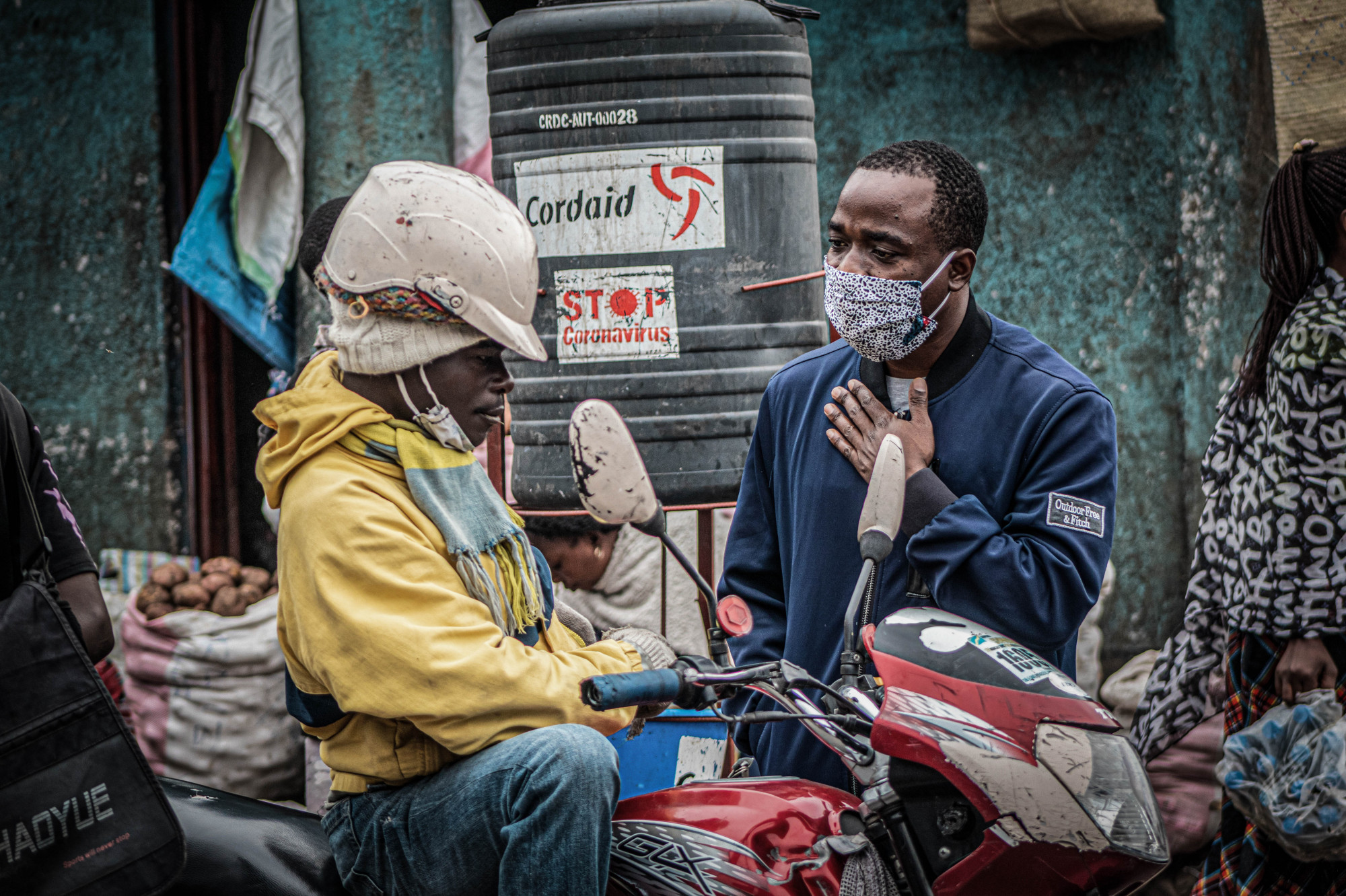

Kinshasa and Goma, July 31, 2020
Reading time:
10 min
“It’s a disease of Europeans, in Congo this disease does not exist!” Pascal Mutemba, a pork vendor, shouted at members of Filimbi, a pro-democracy and civil society movement that with support from the European Union was conducting an awareness campaign and handing out masks.
“I live in my usual rhythm, if coronavirus was real we would be counting deaths in this place where people are living crammed together selling their merchandise,” said another man who works as a driver in the capital, adding that many people use traditional herbs to ward of sickness. “Our people are immunized by traditional kongo bololo products, but also our consumption of locally produced drinks with a high alcohol level does not allow your famous Covid-19 to exist in our bodies.”
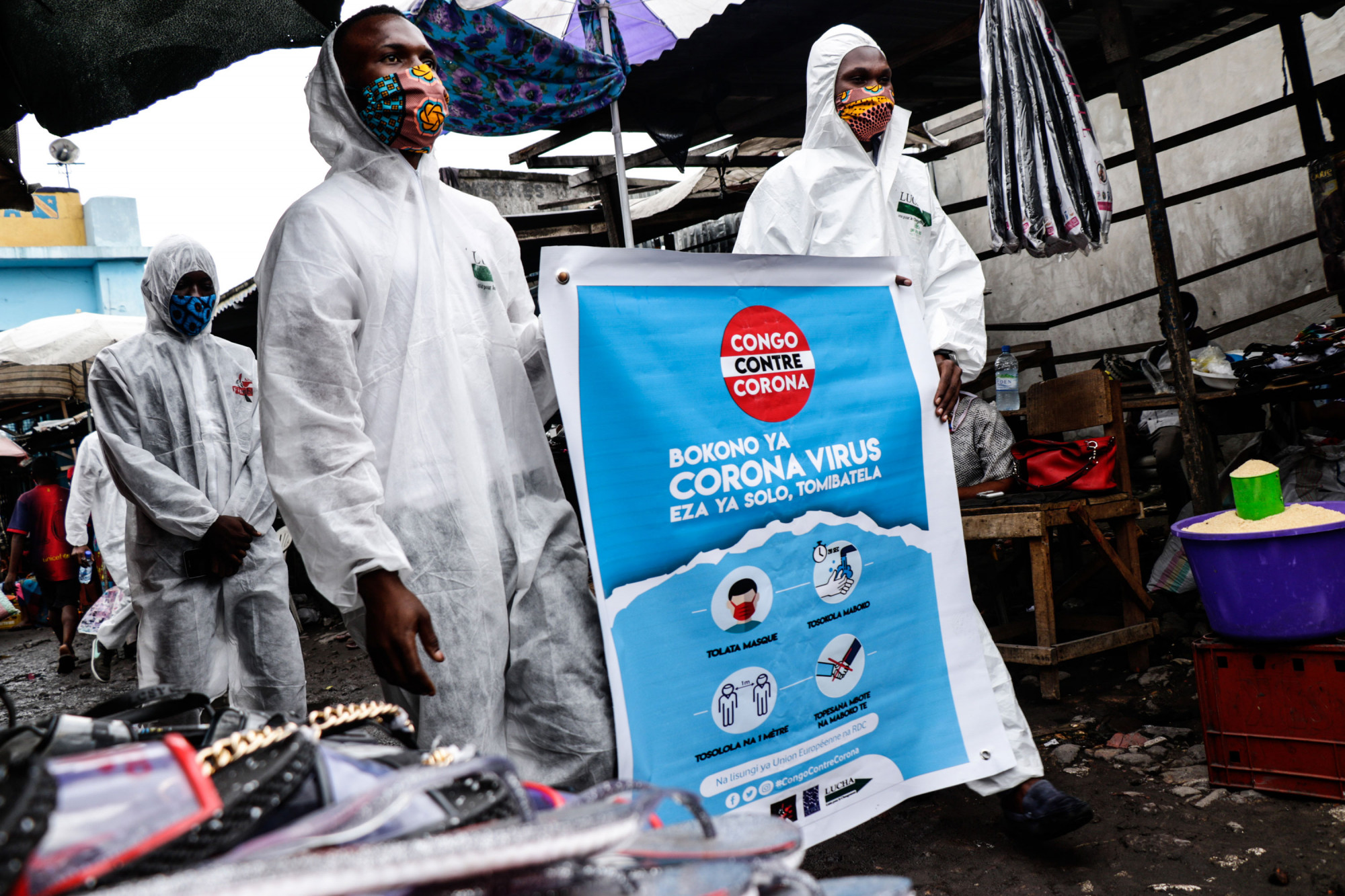
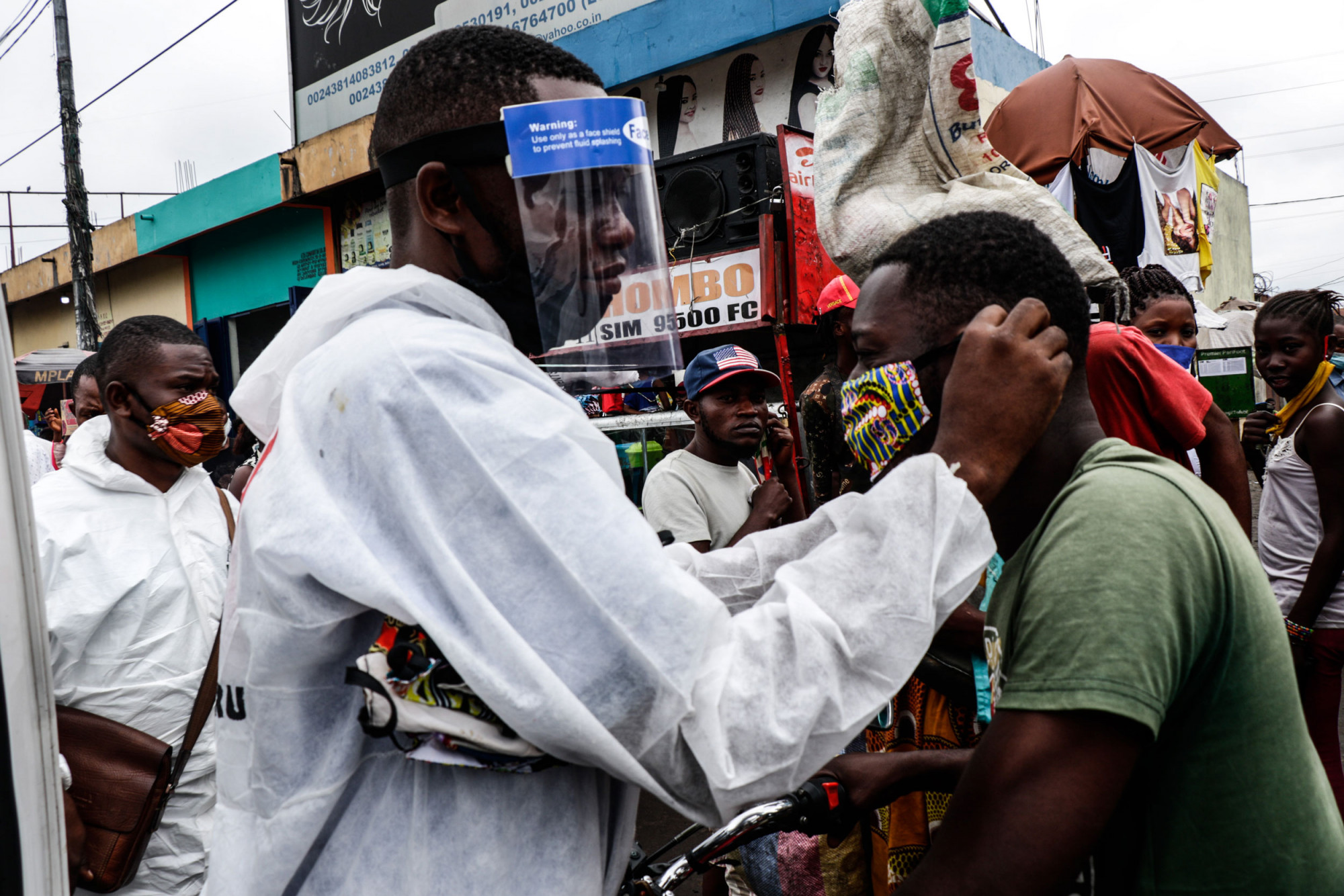
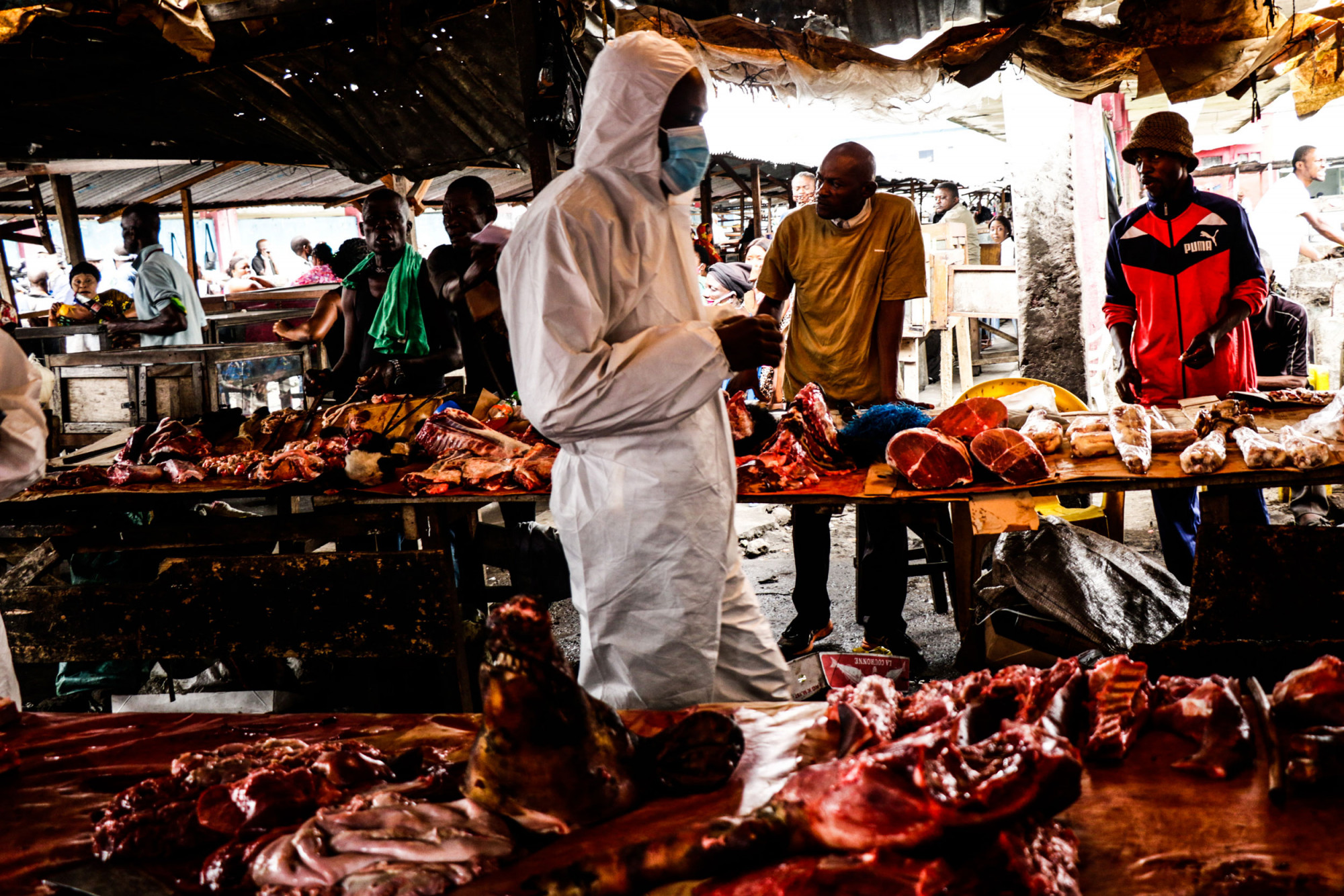
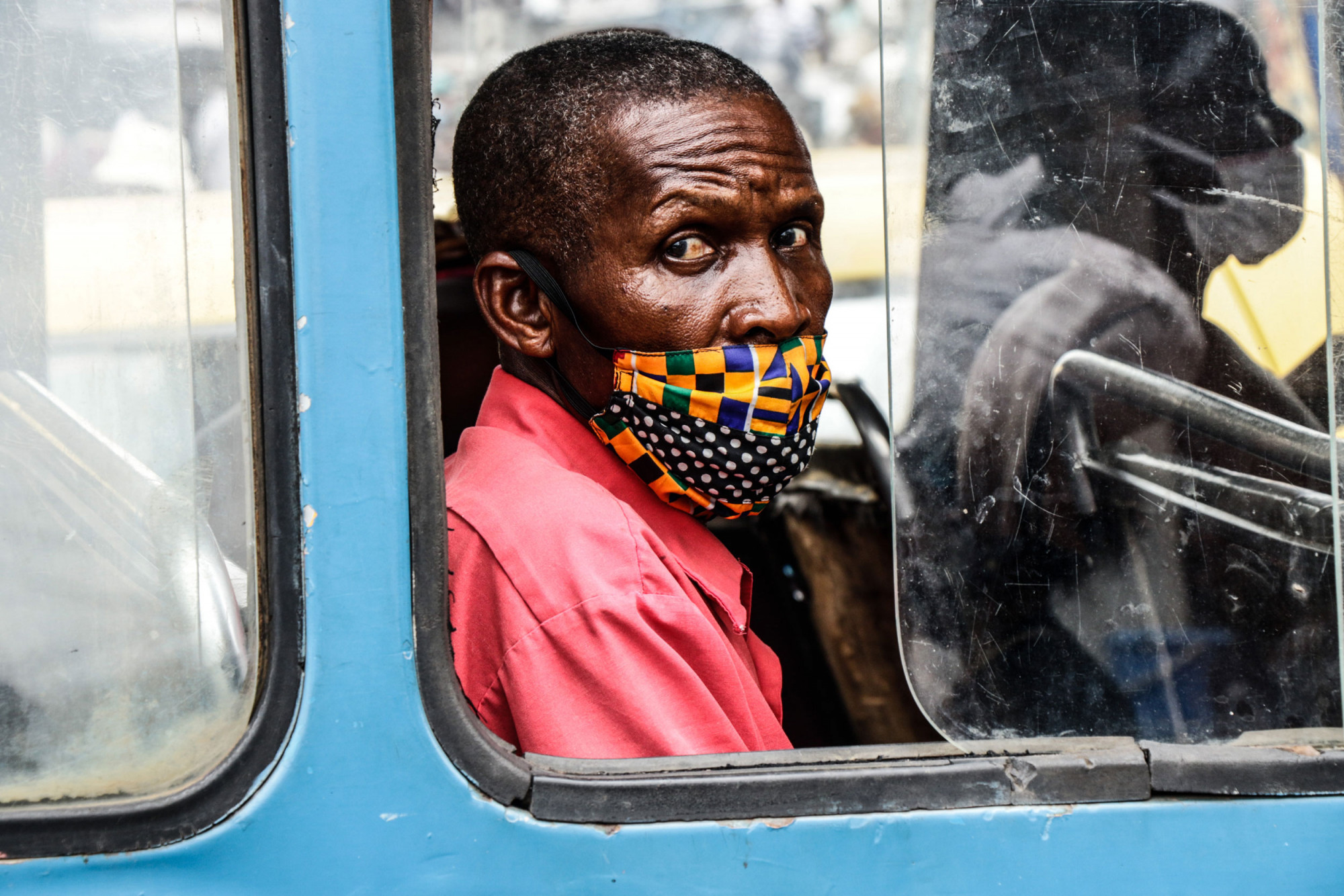
Doubt and confusion over the virus is particularly acute in Congo, where mistrust in the government and official incompetence and greed hindered a two-year response to an Ebola outbreak in North Kivu and Ituri provinces, which killed 2,287 people and was finally declared over last month. Efforts to combat that epidemic were hobbled by attacks on treatment centers and health workers; deep suspicion of the national government, which managed the response; and further mistrust of the international medical experts who struggled to steer patients into the treatment centers. Local residents suspected the response teams, both Congolese and foreign, of fabricating the outbreak to engage in the kind of profiteering that was locally referred to as “Ebola business.”
Accusations have arisen that a similar pattern of exploitation is now occurring in the response to a separate Ebola outbreak in the western Equateur province which has infected at least 67 people and left 31 dead. As response funds flow into the region – more than $34 million has been budgeted until September – humanitarian organisations say they have been “pressured” to hire people on an approved government list that includes the names of parliamentarians, civil servants, and other connected individuals.
With people more likely to trust members of their own communities than politicians seen to be profiting from health crises, Congo’s youth activists have worked to provide accurate information and to raise awareness about the pandemic.
“When Covid started, there were no NGOs or government who were talking about it here in Goma and we could hear on the radio or see on TV how it was ravaging other countries, so we said to ourselves, we must do something,” said Eugene Maisha Buingo, a member of Goma Actif, an independent, non-profit, apolitical and non-religious collective of young artists, musicians, journalists, and engaged citizens in eastern Congo’s biggest city.
Goma Actif quickly embarked on a campaign to provide information on the coronavirus, visiting six major markets, where they explained the importance of social distancing, hygiene, and the use of barrier methods to control contagion. They also distributed 6,000 masks across the city, focusing on the elderly and vulnerable as well as transport workers while working to counter the kind of contradictory information that has impeded responses to the virus globally.
![Goma, DRC, May 2020. [1] Activists from the community collective Goma Actif provide information on coronavirus on the streets of the eastern Congolese city of Goma in May. [2] Activists from the community collective Goma Actif provide masks to motorcycle taxi drivers at a downtown intersection in the eastern Congolese city of Goma in May. © Arlette Bashizi for Fondation Carmignac](https://congoinconversation.fondationcarmignac.com/media/pages/reportages/es-jeunes-s-attaquent-au-coronavirus-desinformation-justin-makangara/2997c19162-1666087196/arlette-bashizi-carmignac-goma-coronavirus-2-2000x.jpg)
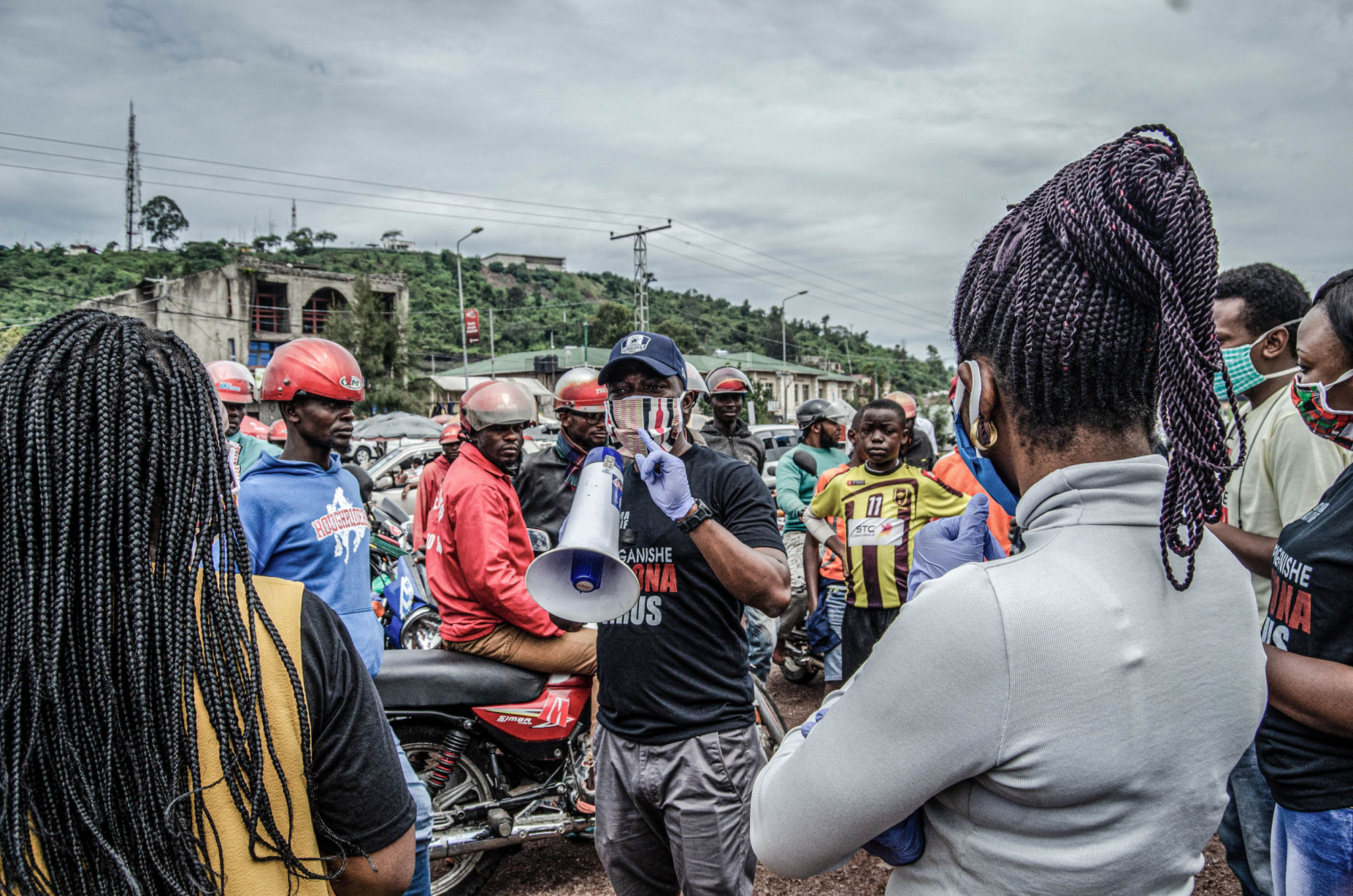
Groups such Filimbi, Goma Actif, and the Bahati Foundation, another non-profit youth organization, represent Congo’s educated and organized youth movement largely working on a volunteer basis. By using social media and venturing out onto the streets in poorer neighborhoods to distribute information and supplies such as masks, soap and sanitizer, the youths provide a grassroots approach to tackling disinformation around the virus.
“It’s really important for us as young people to act as we did,” said Michael Kalamo Bauma, a photographer and entrepreneur who co-founded Goma Actif. “Most of the time we wait for help from NGOs or the government, but those solutions don’t really fit with the real problems facing our communities. We know our community and we design solutions that we can control and can check before we act. This could represent a generational shift if we create a kind of movement where young people talk to one another and take action together.”
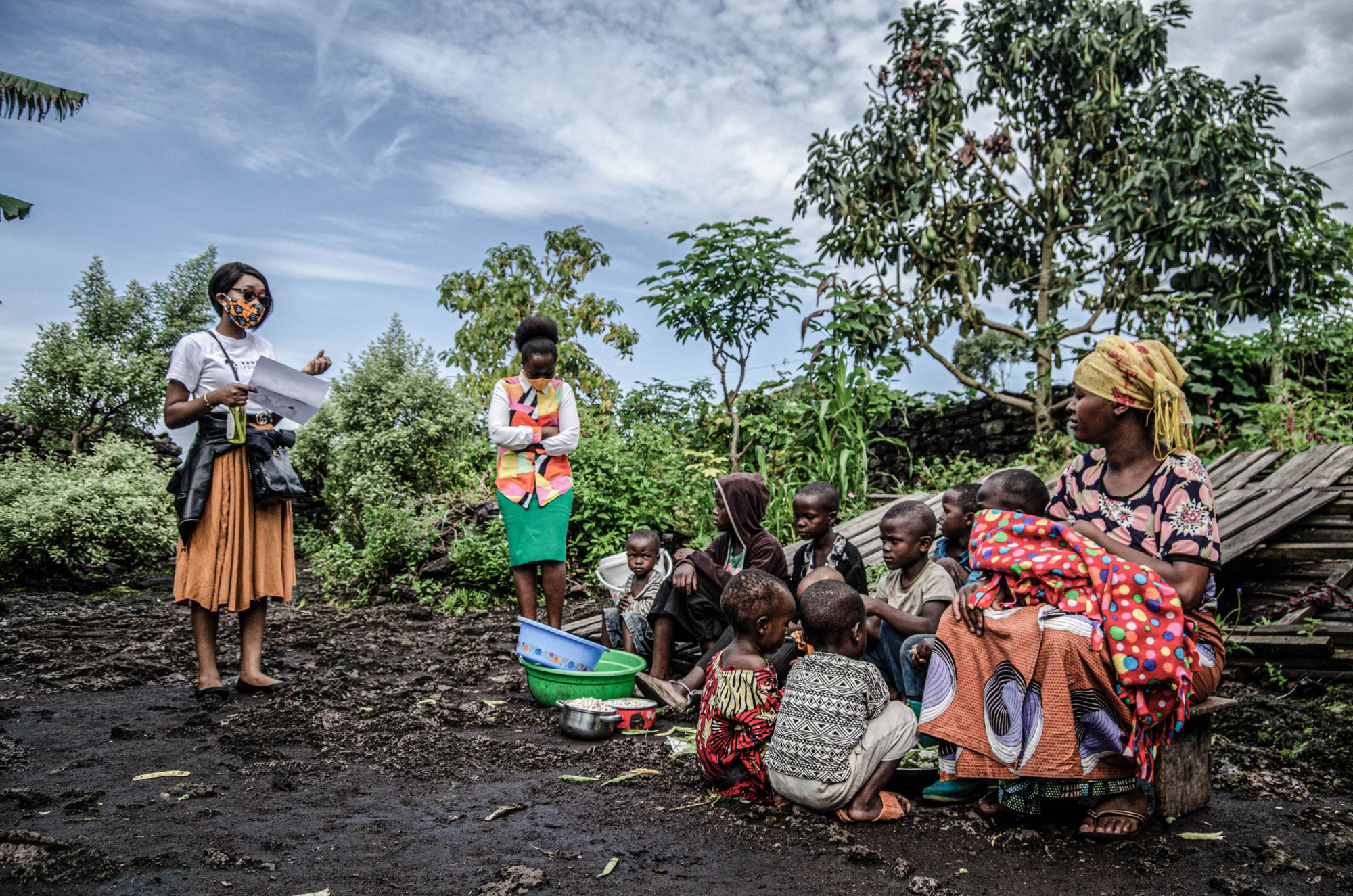
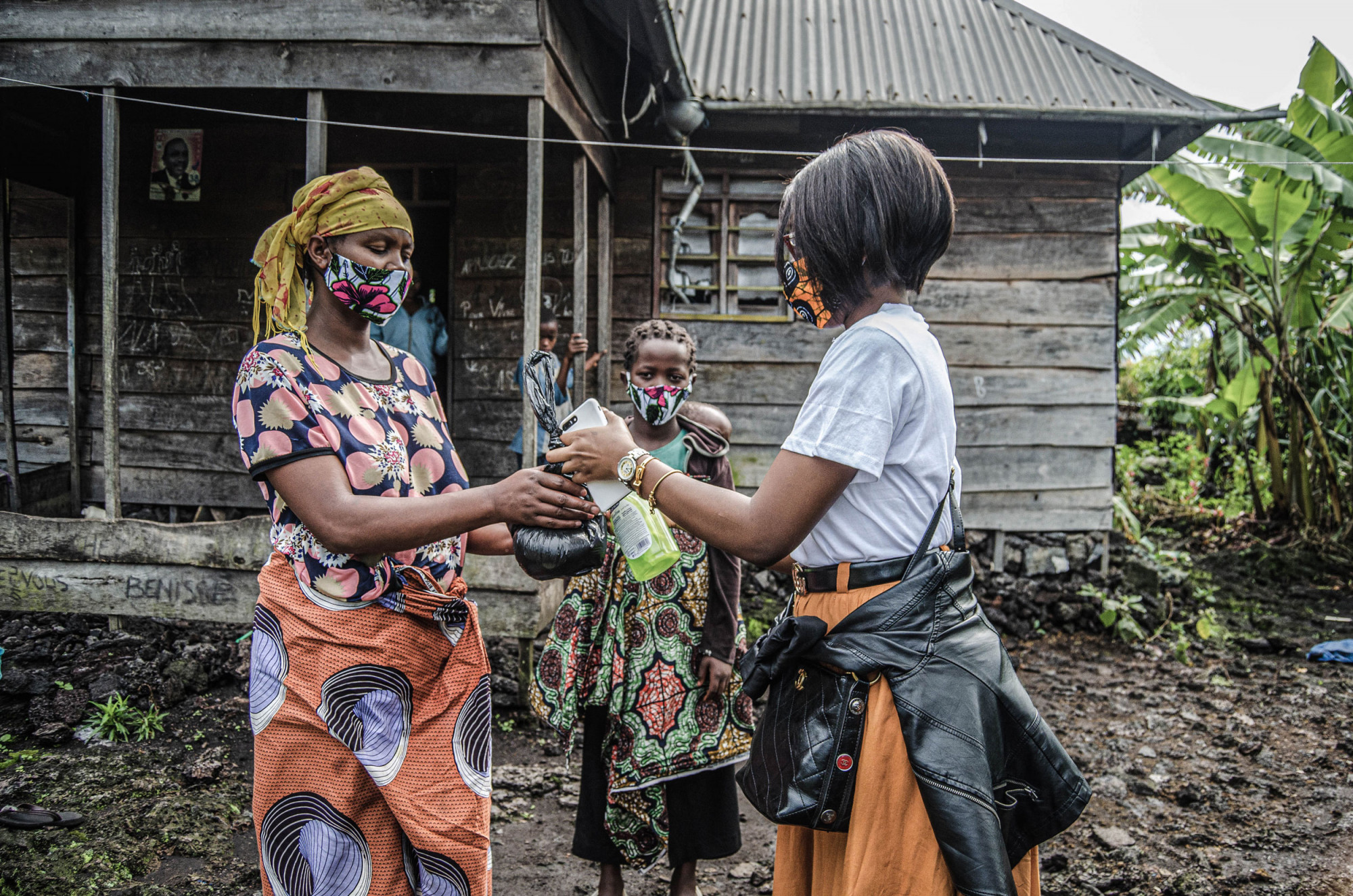
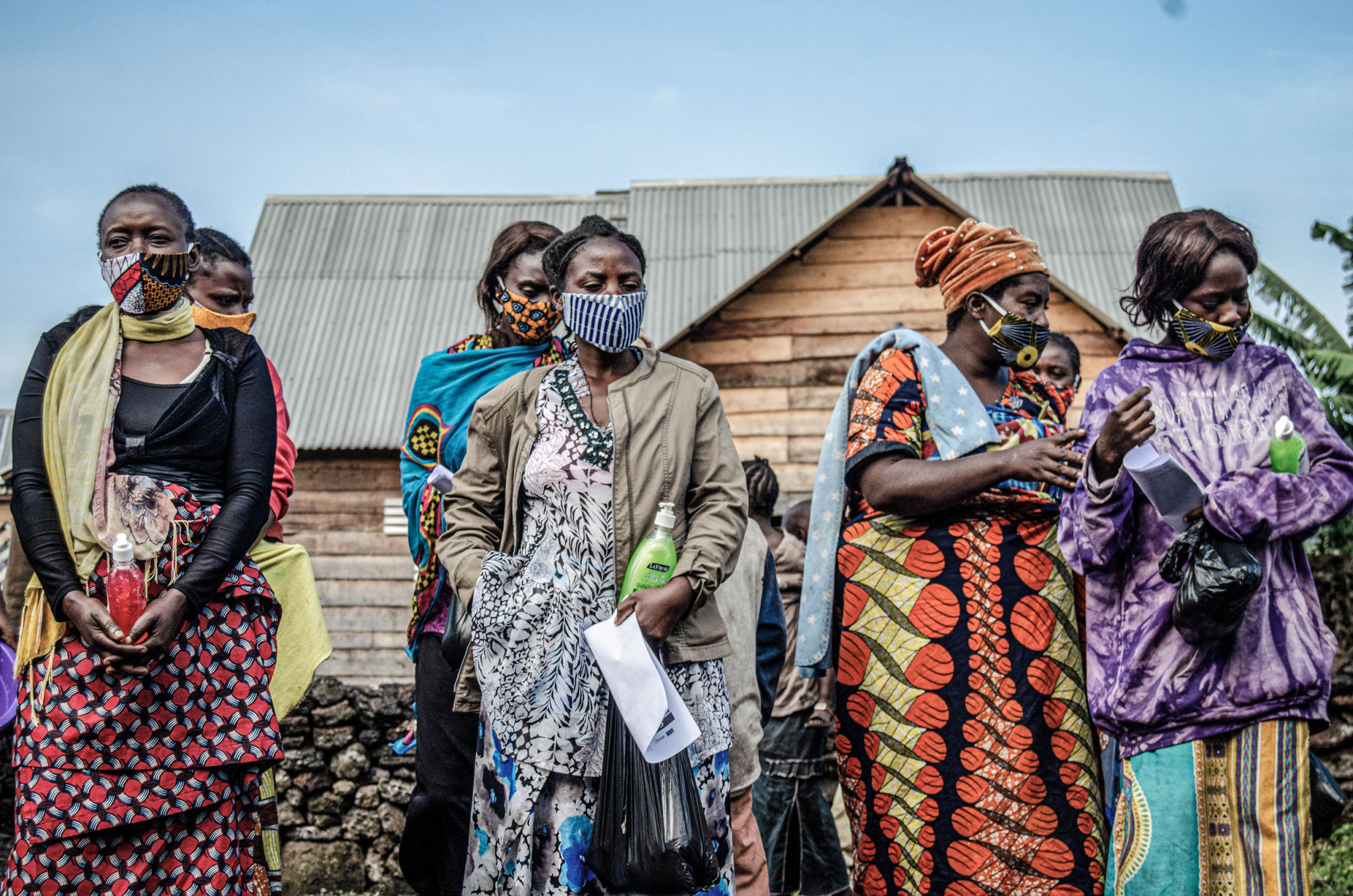
Despite a weak healthcare infrastructure and limited access to water and sanitation, Congo has so far managed to avoid the early dire predictions of the impact of the virus. As of July 29, Congo had 8,872 confirmed cases and 207 deaths according to World Health Organization, but the economic impact of emergency measures that closed borders, limited travel and slowed economic activity, has had a devastating effect on a population that mostly lives on less than $2 per day. Some 46% of Goma residents in the SH survey reported enormous difficulties in feeding their dependents during the emergency health measures imposed on March 24. Those measures were lifted last week, but many Congolese are still struggling to get by.
“Famine kills more than your Coronavirus,” said Merci Dieu, a vendor in Kinshasa’s Gambela market. “No one cares about finding a solution to hunger. Congolese politicians seek to get rich consuming EU funds and money from all those organizations that are supposedly helping Congo. We are tired of this. The distribution of masks is not enough, it is unimportant for a person who can’t even put a dollar in his pocket all day.”
The lifting of emergency health measures means some of the economic hardships may be eased as markets reopen and trade resumes, but such developments elsewhere have often led to a spike in infections.
“Much still remains to be done,” said Maisha Buingo of Goma Actif. “We have done our work to protect the city and we’ll continue to do so. Even if it’s not easy, we’re determined to keep going.”
